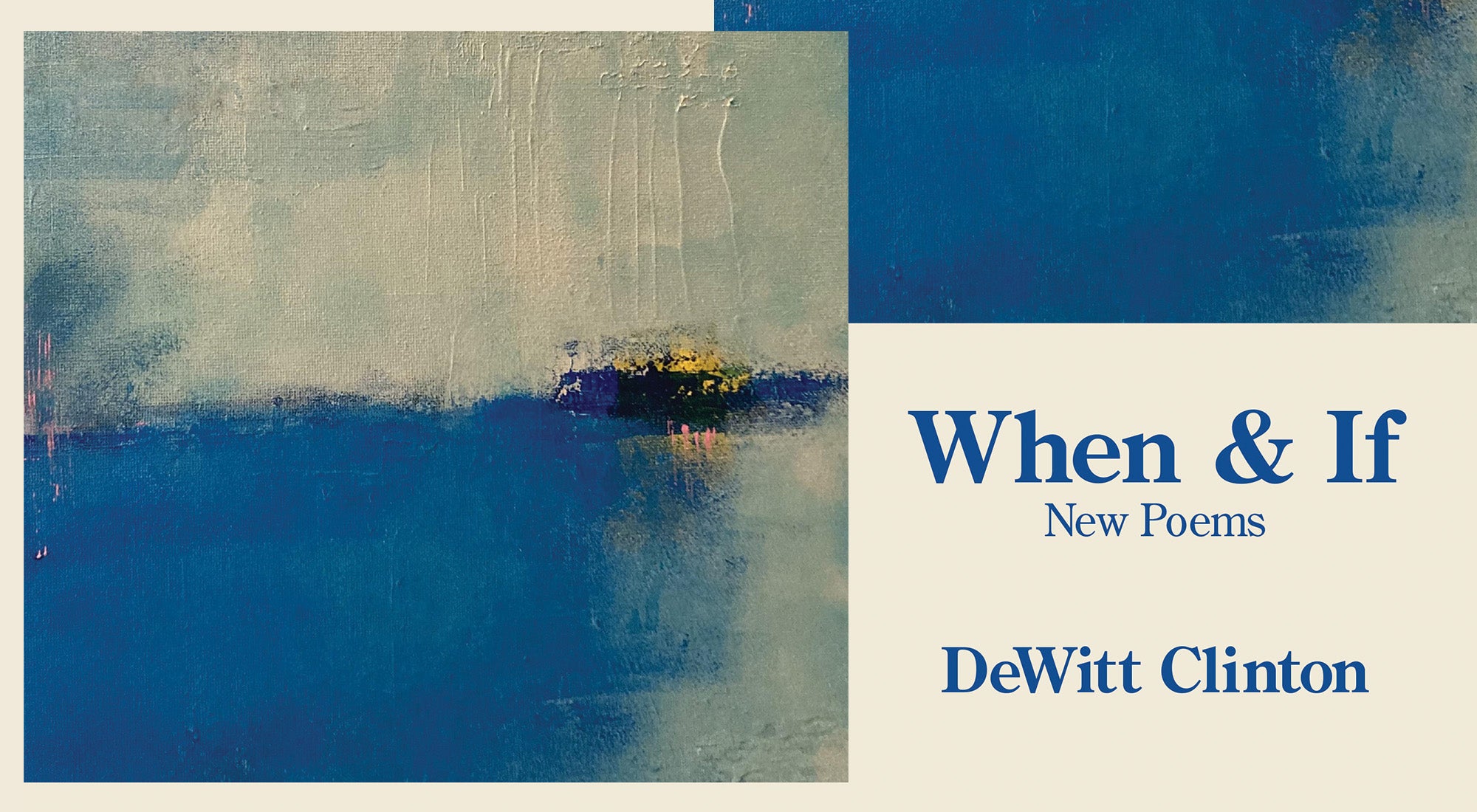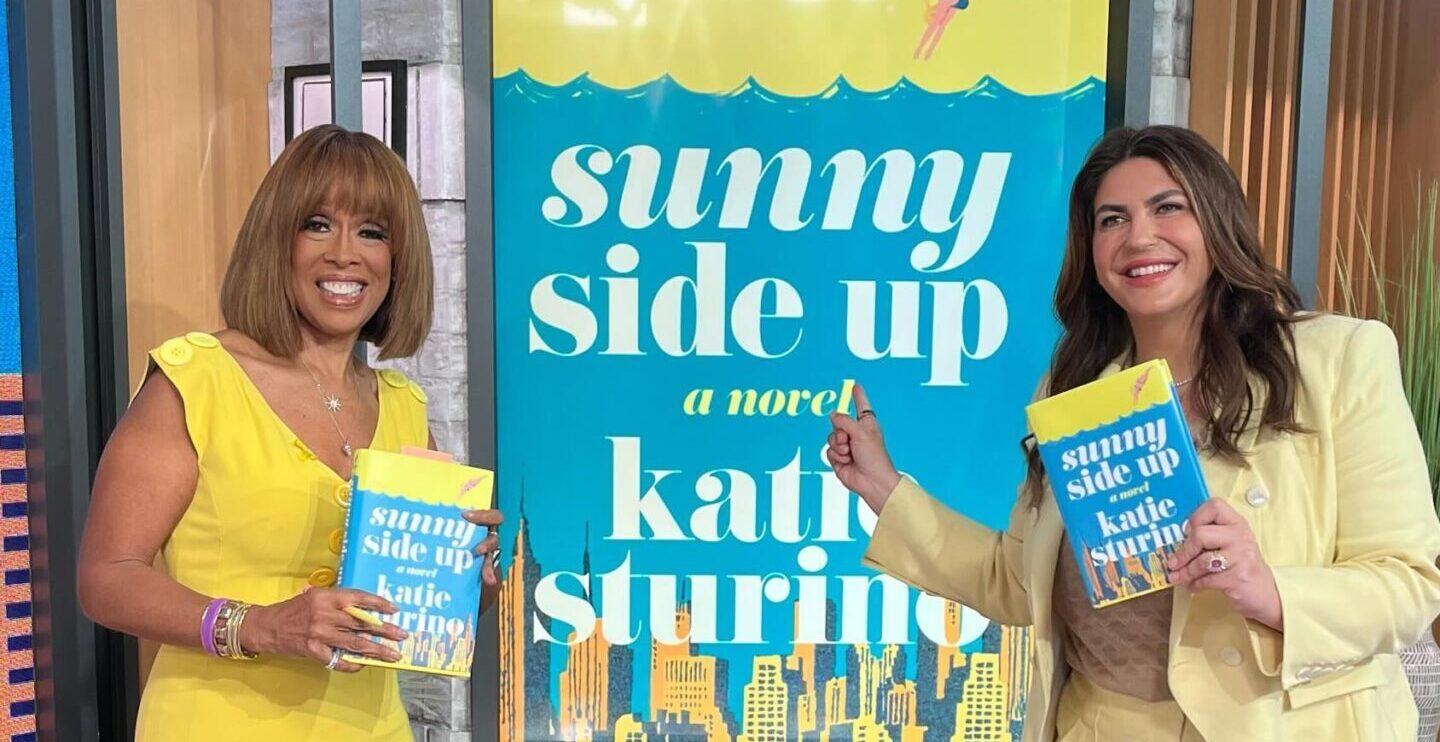We turn in, tune on, and drop out with T.C. Boyle. Also, we go dancing on a weeknight with comedian Josh Gondelman. And Carlene Carter talks about honoring her Carter Family legacy and making rockin’ country music.
Featured in this Show
-
TC Boyle's New Novel Is Under The Influence Of Timothy Leary
T.C. Boyle has just published his 17th novel. It’s called “Outside Looking In” and as in many of his previous books, a real-life person shows up. This time, it’s Timothy Leary, the man who encouraged people to “tune in, turn on and drop out.”
“This is a book about expanding your consciousness and that is getting out of your body,” Boyle told WPR’s “BETA.” “And since Timothy Leary is sort of the presiding genius and motivating factor for the book, I was going back to the Moody Blues,” Boyle said.
The title, “Outside Looking In,” comes from the Moody Blues’ 1968 song “Legend of a Mind,” which opens with the lyrics: “Timothy Leary’s dead / No, n-n-no he’s outside looking in.”
So why did Boyle want to write about this particular subject and this particular time in American history from 1962 to 1964?
“You may recall that I wrote a book called ‘Drop City,’ published in 2003, and it was my reflections on the hippie movement in the late ’60s, which was my time,” Boyle explained.
“Could we go back to the earth? Was that viable? Was that a good idea? And that book begins with an acid trip. Now in recent years, there has been some press about the fact that LSD is coming back into favor with the medical profession, as it had been before Leary and (Ken) Kesey and some of the others let it loose in society and it became banned,” Boyle said. “With that in mind, I felt like I’d like to go back to a time before ‘Drop City,’ before my time.”
“And this book is very narrowly in a window of time from ’62 to ’64,” Boyle continued. “And it deals with Timothy Leary when he was a respected psychologist at Harvard and his discovery of psilocybin first and then LSD. And he’s becoming a kind of messiah for it among his students and fairly well requiring his students to have this mind-opening experience with him. I wanted to see how we got to Jimi Hendrix and that coat with the eyeballs on it.”
In recent years, Michael Pollan and Ayelet Waldman have written books about the positive effects that microdoses of these drugs can have, which raises the question of whether or not Boyle has had similar experiences.
“I only knew macrodoses of street drugs,” Boyle said. “And my knowledge of this is memorial because we are going now back to my 20s. My experiences were somewhat pleasurable at first. I put my time in a long time ago and I am not interested in that drug personally because I never had good experiences. I think it’s because my mind is so active anyway as a novelist.”
“My drug times were rather severe. Once I discovered my métier in life, and that is to do what I’m doing now, that is to produce a body of literature for my own purpose and to try to figure out what our animal species is doing on this planet,” he continued. “I shut the door on all of that for the most part because I was absolutely dead serious about what I wanted to do and I would not mess with that.”
Boyle was fascinated by exploring how students would react to their professor, Leary, encouraging them to open up to drugs.
“And so, I’m writing this from the perspective of a fictional student (Fitzhugh Loney) of Leary. He’s a guy in his 30s, he’s going to graduate school at Harvard, he’s worked hard as a school psychologist to pay for it and to get into college. And he comes from a long line of Irish drunks and he does not want to mess with it,” Boyle said.
“But there is a lot of societal pressure and both he and his wife fall under the spell of this coterie and become part of Leary’s group which then goes to Zihuatanejo in Mexico for summer experiments. And finally, after Leary was declared persona non grata at Harvard, to Millbrook in New York where one of Leary’s acolytes, very, very wealthy, had given him a 64-room mansion to conduct his experiments with his communal arrangement of all of his students, hangers-on, and so on.”
“What interests me in this book, too, is the notion of God. The first and last lines of the text, exclusive of the Prelude, both reference God. These drugs are known as entheogens; that is, they allow you to see God. And what the drugs do is they edit out the controlling mind that, in turn, edits out all the impressions rushing into us at all times. Otherwise, we would be schizophrenic,” Boyle said.
“This cuts that down to the more basic snake brain and we then are susceptible to all sorts of natural rushes of nature through our five senses. Is that God? And also, you know, we see the texts of the great religions, of the Quran and the Bible and so on and even of their latter iterations in Mormonism and so on,” Boyle continued. “These are clearly constructed by human beings almost as if they are novels. But is God just some miswiring of the brain? Is this concept just some impression? I wondered about that and so I pursued it through the book to find out.”
Leary is just the latest in a series of actual people who have appeared in Boyle’s novels.
For example, “The Women” features Frank Lloyd Wright and his relationships with four women, and “The Road to Wellville” features John Harvey Kellogg, the inventor of cornflakes. And those are just a few examples. Why does Boyle like to include people from real life in his books?
“There are no rules in writing a novel. I could have Frank Lloyd Wright be captured by Martians if I wanted. But that’s not what interests me,” Boyle said. “I am fascinated by things I discover about history. ‘The Road to Wellville,’ for instance, John Harvey Kellogg. Well, why do we eat cornflakes? What was the health food movement like? These figures in history who weren’t necessarily the generals but who completely revolutionized what we do and who we are today. And the stories I discover are innately fascinating to me and I want to give them to you whole cloth.”
-
Comedian Josh Gondelman Might Be Nicest Man In Comedy
Nice guys are supposed to finish last, but comedy writer and stand-up comedian Josh Gondelman seems to defy that aphorism.
Frequently referred to as “the nicest man in comedy,” the Boston native, and current Brooklyn, New York, resident, must feel more than nice as his career in the cutthroat entertainment business is clearly on the rise.
Gondelman’s comedy CV remains impressive.
He earned his stripes in the comedy world after years of working as a stand-up comedian, freelance writer and author. Many took note of his writing talents, but even more did so when he co-created the Modern Seinfield Twitter account, which posits “What if Seinfeld were still on the air?” and presents sitcom premises and dialogue in tweet form. The ensuing social-media frenzy opened important doors, and Gondleman went on to work as a web producer and writer for “Last Week Tonight with John Oliver” on HBO for five years. Earlier this year, he moved over to become a writer and producer for late-night talk show “Desus & Mero” on Showtime.
With Gondelman’s new stand-up album, “Dancing On A Weeknight,” arriving Friday, “BETA” host Doug Gordon sought to ask him the crucial questions about his new album, his comedic voice, his high-profile gigs and just how he got the rep as the “nicest man in comedy.”
The interview has been edited for brevity and clarity.
Doug Gordon: Where does the title of your new album, “Dancing On A Weeknight,” come from?
Josh Gondelman: It’s fun, but it’s not outrageous in any way. I think … it’s kind of like a mostly wholesome, good time that you know maybe it leads into other things. Maybe it doesn’t, but it’s the idea of just like dancing on a weeknight is just like slightly outside of what you’re supposed to do.
DG: How (has) your comedic voice developed over the years that you’ve been doing stand-up?
JG: I think it’s gotten a little closer to how I see the world and I think I’ve gotten better able to be more like myself and more like the way I can be funny offstage while I’m on stage. I’m also doing less saying stuff because it’s funny and gets a laugh and more saying stuff that’s like, “Oh, I’d like to talk about this like this is an idea or an experience I have.” And I wonder if I can put that through some kind of filter and turn it into comedy rather than I have this thought I said it. People laugh at it so it stays in the hour.
DG: The Village Voice, in one piece in a story about you, they describe you as a high-functioning neurotic? What does that mean? First of all, do you agree with that description?
JG: It’s a very sweet and very fun way to describe me. I don’t think I’m that neurotic.
Drew Grant at the Observer, years ago, when I co-wrote a book … described me as, I think, … as a pathological sweetheart. That is something that’s always stuck in my mind where it’s not that I am. It’s not that I’m neurotic and functioning in spite of it, it’s that my specific pathology has me locked into unfailing politeness, even when there is no reason to be polite and kind of unflagging cheeriness even when there’s no reason to be cheerful.
DG: You’re frequently described as the “nicest man in comedy” as well?
JG: That’s very kind. And it’s very nice to have that reputation. And I try to be nice. I think there are other very nice people, but I think I might not be the nicest, but I’m definitely very friendly, and I think friendly reads as nice when, kind of quiet and supportive, otherwise doesn’t outwardly play is as nice all the time, especially when someone’s act is a little greedier than mine.
And I think that because my act is also very cheerful and pleasant, that I reaped the benefits of that, conflate that with who I am offstage, which is like very close to the same thing.
DG: You and your friend Jack Moore came up with (what) was one of the most brilliant Twitter accounts ever back around 2012, and I’m not using hyperbole here. It’s called Modern Seinfeld. Can you tell me about Modern Seinfeld?
JG: The premise was: What would be little plot threads if “Seinfeld” were still on the air? And just because so much of it was based in little etiquette customs and kind of technological snafus, like answering machine messages. And there was just so much of it that felt like if you lived through that time, it still plays. But it’s like answering machines are such a specific thing that I don’t know if a 14-year-old in the year 2019 gets the visceral feeling of, “I have to go home and erase this answering machine message because someone else will hear my voicemail.”
And so I had tweeted a couple of things about Modern Seinfeld plotlines just from my own account. And Jack was like, ‘You know, this could really be a thing.’
And so he staked out the handle and then we just kind of wrote that for a while. And it was very, again, very flattering that people liked it and it was really fun. But also we were like standing on the shoulders of giants in terms of “Seinfeld” is one of the best TV shows of all time … So it was very thrilling that people thought that we were doing a good facsimile or extension of this like beloved TV institution.
Kramer hosts a “non-recorded” podcast. K:”It’s just like a podcast, but no microphones.” J:”So a conversation?” K:”You don’t get it Jerry!”
— Modern Seinfeld (@SeinfeldToday) January 9, 2014DG: You managed to parlay your Twitter account into a comedy career. How did you do that?
JG: I’d already been doing stand-up for a number of years … when the Twitter account exploded. Basically overnight, we got these (opportunities). People wanted to talk to us about things. They wanted to hear pitches for stuff. And I was like slightly unprepared. I didn’t have a lot of scripts ready to go. “Hey, staff me on the show. Here’s my writing sample.”
So, I did after the Modern Seinfeld Twitter kind of blew up, I applied to writing jobs basically for a year. Thanks to … a little bit of industry attention and validation that came from that. And I did a little work for “Billy on the Street” the summer of 2013 and then I got hired at the beginning of 2014 to do the digital social stuff for “Last Week Tonight With John Oliver” as the show (was) launching. And I did that for a year and then was moved over mostly to write for the show.
I was there for half a decade, which is like truly wild to me. I never thought that that could happen. When I started doing standup, (I) did not ever really think “Oh, I’m going to get to work at a show that I am really proud of with people are really great and for such a sustained period of time.” I would watch “The Daily Show” in high school and college and think, “Man, what a cool thing that is.” And then I got to work in that field.
DG: Can you point to a particular moment that you created for “Last Week Tonight With John Oliver” that you’re particularly proud of?
JG: Oh man, let me think. I really like the like dumbest stuff because John, I think, because he’s so rigorous about what he says on the air and so scrupulous about making sure … he’s expressing exactly what he wants to express. And I think his accent lends him an additional gravitas.
He’s an incredibly funny comedian and comedy writer so … it was really fun to write jokes and watch him deliver and kill in the room. And then, immediately hush the crowd because he had four words to say very quickly.
DG: You now work with “Desus & Mero.” Why did you choose to leave “Last Week Tonight” to go work with “Deus & Mero?”
JG: It was just a really exciting opportunity that came up to work on a new show that was launching with people that I think are so funny and it just felt very different in terms of what the show would be like and what … their comedic voice (is). And so, I was really excited to move and have kind of different responsibilities at a different show that I also felt really psyched about.
I wasn’t like clawing at the walls to leave. I would have been very happy coming back for another season. But right as the season was ending, I got asked to interview for the show and it just seemed like a really fun next thing to work on. And I’m really enjoying it and the guys are so funny. And it’s just again going from like one super, over-the-moon dream job to another one, which has been a great privilege.
DG: Did you have to develop a different comedic voice and kind of comedic timing to work on the show?
JG: It is very different. It’s mostly structurally different, where instead of writing as many super, precise jokes, it’s a lot about writing incredibly clear clean copy that leads “Desus & Mero” into the kind of improvisation they’re doing. And then it’s writing a lot more sketches, pitching more silly ideas to do in the field, “man on the street” stuff.
And that was one of the things that I think was appealing to me was that I wasn’t going to be moving and writing the same kind of show in a different voice, but it would be like fully flexing different muscles or like developing different muscles. And I’m very I’m like really enjoying learning how to build up those skills to.
-
Carlene Carter Pays Tribute To Her Country Music Roots
Carlene Carter was born with country music running in her veins.
She’s the daughter of country music stars June Carter and Carl Smith, and she’s the granddaughter of Maybelle Carter of the Carter Family. All 12 of the songs in her latest album — “Carter Girl” — were written or co-written by a member of the Carter Family.
The website, allmusic.com wrote, “Carlene Carter has confronted the mighty legacy of the Carter Family Songbook and allowed it to strengthen her music rather than buckling under its weight.”
“I knew I was going to do this album someday,” Carter told WPR’s “BETA” backstage at the Stoughton Opera House before a recent performance. “But I always felt like while my aunts and my mom, Helen, Anita and June, were still alive, that they were doing that and I didn’t need to do that. And then when mom passed away, I didn’t want to do one of those things where somebody dies and you go off and do a Carter Family album and cash in on the grief or something. Honestly, it hurt too bad to sing the music right after she died.”
“Carter Girl” was produced by Don Was, a member of the 80s group Was (Not Was) and an experienced producer who’s worked with such artists as Bonnie Raitt, Willie Nelson and Iggy Pop. Carter said she really lucked out when she was able to get Was to produce the album.
“We had lots of conversations about it and I made lots of lists of different songs. I wanted to find some that were really well-known but then some that weren’t so well-known,” Carter recalled. “I also wanted to just let the band kind of come in and make it just a little bit more jazzy or whatever, you know, more contemporary. And Don, he’s a bass player, he’s a musician, he’s very lyrical in his playing. So he’s all about trying to get what’s in your head or how you want it to sound.”
The opening song on “Carter Girl” is “Little Black Train.”
“It’s a spiritual song,” Carter said. “I never had heard it before, which is so bizarre. But when I started researching the Carter Family music, there was like 700 songs. And I never realized there were quite that many. So I ended up getting ‘In The Shadow Of Clinch Mountain,’ the box set of the Carter Family, and I looked through the book and I looked at lyrics and titles. And I didn’t listen to the music until I saw something that I wanted to sing about. And that’s how I picked stuff.”
Carter also re-recorded one of her signature songs, “Me and the Wildwood Rose,” for “Carter Girl.” In this song, Carter shares childhood memories of her grandparents, Maybelle and Era, and her half-sister, Rosie Nix Adams, who passed away in 2003.
Carter said she wanted to re-record the song “because it meant more to me than it did when I wrote it in 1990 … it meant even more because they had all passed away. And Rosie, as well, had passed away. So it was my honoring them, all of them that had made me who I am.”
“And that’s what my grandmother’s wish was is that we would keep the music alive always. And so as a young kid, that’s what I was told. When we’re all gone, you have to make sure to keep the music alive. And it was drilled in me. And not in a mean way. It was like you’ve got a responsibility here.”
In 1990, Carter released her most commercially successful album, “I Fell in Love,” which featured four hit singles, including the title track which includes some frenetic fretwork from legendary guitarist Albert Lee.
“I can tell you the truth about this song was that I had been working with Howie Epstein, who’s from Milwaukee. The late great Howie Epstein. I did not want to fall in love with a bass-playing producer like I had married before (Nick Lowe). But I remember saying to one of my best friends, Kathy Valentine (of the Go-Go’s). I said, ‘You know that Howie Epstein?’ She goes, ‘Yeah.’ And I said, ‘I think I like him.’ And I remember thinking ‘I fell in love.’ And then I said, ‘Whatcha wanna do that for?’ And I just had this vision of it being like this real singalong thing in the audience.”
Carter released her third album, “Musical Shapes,” in 1980. It was produced by her husband-to-be, Nick Lowe, and featured the band Rockpile on most of the tracks. It’s considered by many to be Carter’s breakthrough album. One critic described this album “as perhaps the greatest fusion of rock and country since the days of rockabilly.”
“Rockpile were perfect for it. Really, ‘Musical Shapes’ was the record I went to England to make. And it all fell together. And the reason it did work is because by that point, I had known these guys for a good long while,” she said. “You know, it wasn’t like we were just thrown in the room and they were going ‘Oh, do you know George Jones?’ That’s the first thing Dave Edmunds ever said to me.”
“I wanted to be the rocking-est country female act that there was ever. I turned cartwheels across the stage, I would fly myself out into the audience and hopefully, they’d catch me,” Carter said, adding “most of the time they did.”
Music critic and author Bill Friskics-Warren has compared Carter to Emmylou Harris. He has said they’re both roots-music renaissance women who can do it all. So what does Carter think of that comment?
“Wow, that is an amazing compliment. Wow, I just got cold chills from that because Emmy is my hero. The last tour I did with (John) Mellencamp, I put Emmy’s name in the hat and she came out and did it with us. And that was fantastic because I’d always wanted to be on tour with her. And then recently, we did the Cayoma Cruise, my band and I went down and did that, and Emmylou was on it as well. And for the first time, I got to sing, she sang with me on ‘Easy From Now On,’ which is the song that I wrote for her, which she recorded in 1978.”
Episode Credits
- Doug Gordon Host
- Adam Friedrich Producer
- Steve Gotcher Technical Director
- T.C. Boyle Guest
- Josh Gondelman Guest
- Carlene Carter Guest
Wisconsin Public Radio, © Copyright 2025, Board of Regents of the University of Wisconsin System and Wisconsin Educational Communications Board.




